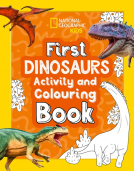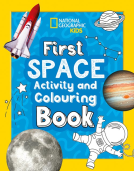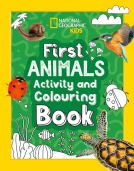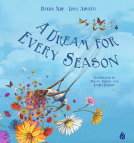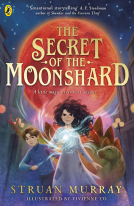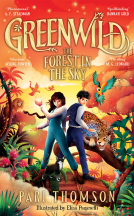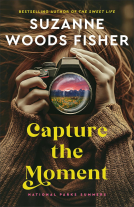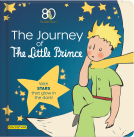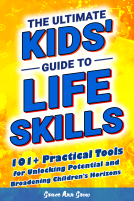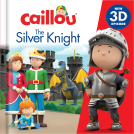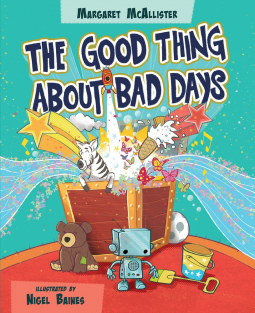
The Good Thing About Bad Days
by Margaret McAllister; Nigel Baines
This title was previously available on NetGalley and is now archived.
Send NetGalley books directly to your Kindle or Kindle app
1
To read on a Kindle or Kindle app, please add kindle@netgalley.com as an approved email address to receive files in your Amazon account. Click here for step-by-step instructions.
2
Also find your Kindle email address within your Amazon account, and enter it here.
Pub Date 19 Jun 2020 | Archive Date 22 Sep 2020
Lion Hudson Ltd | Lion Children's Bks
Talking about this book? Use #TheGoodThingAboutBadDays #NetGalley. More hashtag tips!
Description
Advance Praise
'A book of excellent, easy to understand ideas that both help children to healthily express and manage their emotions and build resilience, and parents and carers to know how they can support them.' - Sue Monckton-Rickett, Chair of the Association of Christian Counsellors
'An imaginative treasure trove of ideas and activities, this insightful book helps young readers get through the ups and downs of their emotions.' - Joanna Buglass, BSc (Hons) AdvDip (Counselling) MBACP, professional counsellor
'This book will be another good thing about a bad day.' - Helen Hay
, BA (Hons) MA CQSW, social worker
'A warm and wise approach to the importance of nourishing a child's emotional health, and a useful resource for all those who care for children and young people.' - Dr Claire Parsons
'Personal, powerful and professionally supported' - Karenza Passmore, Director of the North East Religious Learning Resources Centre
'Heartwarming, funny, practical, real, and like a huge big hug.' - Revd Rachel Scheffer, Priest in Charge of Stamfordham, Matfen, and Ryal, and Diocesan Development Officer for Children,s and Youth Work
Available Editions
| EDITION | Other Format |
| ISBN | 9780745978444 |
| PRICE | US$14.99 (USD) |
| PAGES | 64 |
Featured Reviews
*thank you to Netgalley, Margaret McAllister and Lion Hudson Ltd for an ARC of this book in exchange for an honest review*
4 stars.
This was quite good. It's very helpful and while it's aimed at young kids, 5-9, I feel that that age range is far too short. Even as an adult I found this rather helpful as it addresses the right ways to go about dealing with hard emotions such as sadness, anger and worry. It is also displayed in an easy to read, eye catching, fun way with little illustrations throughout.
One thing to point out that while it won't be an issue for some, there are religious quotes throughout. I'm just thinking that this might put some people off. Also, I found that the book needed colour. Maybe keep the parts where the describing the emotions in neutral colours but where it's explaining tips and how to best cope, I feel they should be colourful as colour triggers happy type feelings.
I think having half the book as a notebook for people to use was a great idea! I definitely see potential for this.
Everyone has bad days. There is no way around it. It’s how you deal with those bad days that makes all the difference and remember, the good thing about bad days is that they come to an end. The bad times don’t last forever.
The Good Thing About Bad Days is a practical, thoughtful guide to help kids journey through those days when nothing seems to go right. From worries to friendship issues to making mistakes to bullies, this book helps children navigate their emotions and pursue positive solutions. Written from a Christian perspective, relevant and easy to understand Bible verses accompany many of the strategies allowing children to link their faith with managing those difficult days when life seems unfair.
The best thing about this book is how interactive it is. It is also a journal with opportunities to reflect, write, draw and plan what to do next. Children will benefit from the chance to record their feelings and make an “Imagine Box” so they can physically reflect on the different parts of their life.
The final section of the book is just for parents and carers. There is valuable advice for supporting children along with resources that can be accessed either in print or on-line. The key message is that you know your child best and know when something isn’t right. Trust your instincts and seek help.
The Good Thing About Bad Days will be published in June 2020 by Lion Hudson Ltd. I wish it were being released sooner as there are so many children struggling with their emotions during this challenging time. When it is finally available, it will be such an asset to parents helping their children make sense of their world.
Thank you to NetGalley and Lion Hudson Ltd for my copy of this lovely book!
 Stephanie G, Educator
Stephanie G, Educator
This is a short but sweet book with a couple of strategies to help kids that are having a bad day. The last pages are blank to use as a notebook so the child can draw or write.
 Alicia L, Educator
Alicia L, Educator
I received a digital copy of this book from NetGalley in exchange for an honest review.
This book gives loads of strategies for children who are coping with things that aren't going the way they expected. They are good strategies. However, if a child reading the book isn't Christian (another faith, atheist, etc.)the frequent bible verses might not uplift and comfort them in the same way they do the author.
Also I would not recommend a digital copy of this book, as the writing activities would not be feasible.
This was a good book, with lots of great ideas on how to navigate and understand emotions. I did find the age range a little off. Younger children, ages 5-7, would definitely need an adult to navigate through the activities (even if they do know how to read a majority of the words) in order to truly grasp the learning objectives. But, I think, that's also a great thing because parents are forced to not only address the "issue", but also provide their own feedback and emotional responses. I would encourage more of a breakdown for the various age ranges- based on socio-emotional, neuro, and maturation development. Overall, this was a good read!
 Natalie H, Reviewer
Natalie H, Reviewer
I received an advance reader copy of this book to read in exchange for an honest review via netgalley and the publishers.
This is a brilliant book for children to help them understand their emotions and help them to realise they don't need to feel guilty or ashamed when feeling low, sad, angry, hurt or upset and to help them realise their feelings matter and that dark days are not forever.
This book gives some fantastic ideas for children to try and to use to help them deal with sadness and anger and there are some great tools in this book too. I loved the notebook pages at the back too for children to write ideas and thoughts on too.
At the back of the book there are pages for carers/parents to read about if they are worried about a child or concerned about things with pointers to help them made informed choices and decisions to help said child.
The only part I wasn't sure about was that some pages had bible quotes on which I don't think gelled with the book considering it doesn't really have a christian handle to it.
 H S, Educator
H S, Educator
I think this is a brilliant book. It is aimed at younger children but I think anyone who is feeling down and are having a bad day should read this book. My favourite quote from this book is '' The good thing about bad days is that they come to an end. The bad days don't last forever''. There is bible quotes throughout but these are a nice addition. There are spaces to draw or write your feelings too. Lots of cute illustrations aswell. Thank you for the opportunity to review this book.
This was a great book! It was a little difficult to read in kindle format. It could use a little more color as well, but overall I enjoyed it, as did my kids.
The Good Thing About Bad Days
by Margaret McAllister
Back of the Book: “A warming practical book full of advice, suggested activities and encouraging messages to help young children (5-9 years) express and cope with their emotions, to reassure them about handling situations and to raise their self-esteem. With a repetitive mantra that: The good thing about bad days is that they come to an end.
Space is provided for children to draw or jot down their thoughts and responses. Scattered throughout are verses from Psalms and other books of the Bible, and quotations from other sources.
There is a parent section providing additional advice by Dr. Claire Parsons, a Christian GP, and a list of websites and contacts as resources and support for children and parents.”
Impressions: A fun interactive book about feelings. This book was full of insights on how to recognize, cope, and work through challenging life situations. It was encouraging and opened conversations with my boys.
I received a copy of this book via NetGalley in exchange for my honest review.
Mostly Good Points to Help Kids Cope, But…
This particular book is meant for young readers to read on their own, though there is a section at the end specifically for parents and caregivers. If your child is going to read the book, I suggest you read the entire thing as well, as there are points within the book that the author suggests the child talk to an adult or show them a picture. You don't want to be surprised and not know how to react if a child brings you an angry-looking drawing.
For a book meant for children, I thought the introduction wasn't quite as kid friendly as it should be. The writing itself seemed more geared towards those older than young readers, there wasn't a lot of space around the lines, and the acknowledgments to other contributors should have gone some place else completely. Despite the author's statement in this introduction that this book, though it references Christianity, could be used by anybody, I thought the scriptural quotes in so many places within the text and in the notebook portion made this book decidedly Christian and probably not applicable to anyone who is not. This is unfortunate because the book is actually relatively decent in helping kids process bad days and difficult emotions like anger and sadness, as well as how to deal with feeling bad about something they've done or thought or share their difficulties when they don't feel like they can. While there are a few points I quibble with in this book, it would help most children to process their emotions, but the author has limited its potential readership with so many Christian references. While I appreciate that her faith gives her strength, not every child who would benefit from this book will be of the same faith as her.
Mostly, the book imaginatively helps children process their emotions. In the beginning, she sets up the idea of an “imagine” box, where the child is supposed to keep everything that they love and gives them strength so that they rely on these resources when bad days happen or they aren't feeling quite right. She even suggests making a real box with a few physical items as well. Throughout the book, she has the child pull out this imagine box to help them deal with difficult situations.
I did have a few quibbles about what she actually tells children to do in the book or things that she explains. Before the quibbles, let me state that the author mostly does a good job. But here and there, things aren't quite right to my view. When she talks about anger, she gives alternative suggestions to help children through it, like doing something physical or something kind or finding something that amuses them. I've had a few times in my life where I have had white-hot anger, and I can't quite picture in those moments being able to pivot and do something kind or find anything funny. Children might struggle with this as well. I think the activity suggestion is fantastic because anger brings on a rush of adrenaline that actually could be worked out, at least a little, by physical activity. I also thought one thing she stated in the sadness section was completely wrong, and it could make a child feel as though their sadness is unimportant or inappropriate. The author gives a short exercise, suggesting putting sadness in a suitcase and then leaving it behind. She further stated, “It is probably something for somebody else to sort out anyway, not you.” This is so wrong on so many levels. I thought back to my own childhood and remembered my sadness of losing my grandparents, one on each side, when I was six. My sadness was real and my own, separate from my parents’ sadness at their parents’ deaths. Of course, when the author imagined this, she might not have envisioned sadness because of grief. But, I think it is disempowering and belittling to children to say that their sadness is not their own, implying it doesn’t have merit. Perhaps instead of suggesting that the burdening sadness is for someone else to sort out, the author could have suggested that the child sort it out with others.
Despite these flaws, I thought the rest of the book certainly could be helpful for children to process their emotions mentally as well as kinesthetically by taking actions, drawing pictures, and writing in a journal. I wish the author or the publisher would make a nonsecular version of the book so it would apply to more children and family situations. If you are Christian, though, and have a child who needs help to get through their difficult emotions and bad days, this book may be helpful to them.
 Susan A, Educator
Susan A, Educator
This books has some really good strategies and ideas. I would say it could be read by much older children than the intended audience. I wouldn’t recommend though as I found the religious quotes offputting. Thanks to the publisher and netgalley for an egalley.
Readers who liked this book also liked:
National Geographic Kids
Children's Nonfiction, Reference
National Geographic Kids
Children's Nonfiction, Reference, Science
National Geographic Kids
Children's Nonfiction, Outdoors & Nature, Reference
National Geographic Kids
Children's Nonfiction, Outdoors & Nature, Reference
